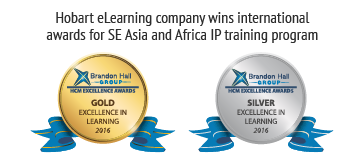Hobart company Sprout Labs has won two prestigious Brandon Hall Excellence in Learning award for a training program developed with Australian Government agency IP Australia for the ASEAN region and Africa.
Learning technologies have a huge amount of promise for improving learning outcomes. Unfortunately, eLearning has become associated with self-paced linear modules that are often slide-based information dumps with a quiz at the end.
Most of the time, the audience for the Sprout Labs blog posts are learning and development people. I often talk about the role of managers in learning and this blog is firmly focused on helping them implement the 70:20:10 learning model in their team.
The problem with short answer questions is that they don't give learners good feedback on their response. This blog post looks at approaches to improving the quality of feedback that is given on short answer questions.
Ideas and trends from the 2016 Melbourne Learning Cafe Unconference
You will not experience a lot of voiceovers in digital learning resources developed by Sprout Labs. There are a few reasons for this but the main one is that we think that voiceovers are just a lazy way of delivering information.
Below are some tips and ideas to think about when developing an elearning strategy.
1. It's all about alignment
Your elearning strategy should be aligned with your organisation’s goals for the future.
This blog is the first in the series of follow-up posts from our webinar ‘How to design a 70:20:10 ecosystem’. During the webinar I briefly talked about the need for learning and development people to move from being course designers to becoming learning ecosystem designers.
I never used to be a fan of the humble multiple choice question, and where possible I tried to avoid using them.
Some of the difficulties with multiple choice questions are:
They can often be easy for the learner to guess. They tend to focus on testing knowledge.
In my post on how to write effective multiple choice questions I spoke a bit about their use for more than just knowledge assessment. I discussed how they can be used to simulate the decision making a learner has to do in the workplace.









